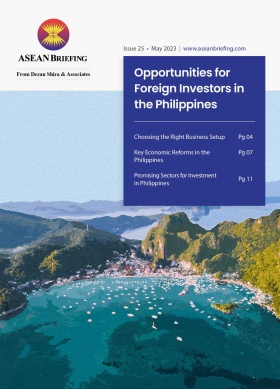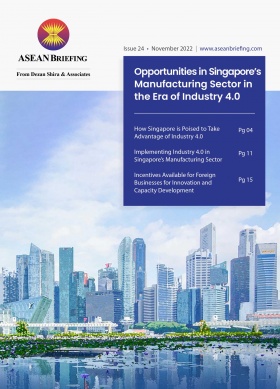Adapting to Singapore’s Escalating Rental Prices: Strategic Implications for Foreign Businesses
The private residential rental market in Singapore experienced a monumental surge in prices in 2022, marking a steep 29.7 percent year-on-year (YoY) increase, a considerable escalation from the 9 percent increase observed in 2021, as reported by the Urban Redevelopment Authority.
Although predictions indicate that rental price growth will decelerate to between 10 percent and 15 percent in 2023 due to dampening demand and the completion of new residential developments, the trend has prompted a sense of urgency among expatriates and international businesses to recalibrate their strategies to navigate this rapidly transforming real estate landscape.
Expatriates are significantly burdened by this situation, primarily because of their temporary resident status in Singapore, which leads to a higher dependence on rental properties. Moreover, with a robust homeownership rate of 89 percent among Singaporeans, the local population remains largely insulated from the rental price surge.
Several contributing factors have fueled rental price inflation. These include the emerging trend of self-reliance among younger Singaporeans who are choosing to live alone and an expanding foreign workforce that is rebounding to pre-COVID-19 levels. The reputation of Singapore as a pandemic safe haven has further attracted an influx of people to the city-state.
The short and medium-term impact on businesses in Singapore
A comprehensive survey, spearheaded by the European Chamber of Commerce in conjunction with various European and non-European national business groups in Singapore, evaluated the impact of rising rental costs on business operations. The study uncovered that these escalating costs have accounted for almost half of the increase in operational expenses, with residential rentals being the main driver.
Although most corporations offer financial aid to offset residential rental costs for their expatriate employees, about 70 percent of these businesses reported increasing difficulty in maintaining their operations in Singapore due to these surges.
The expatriate community, in response, is exploring alternatives, such as relocating to peripheral areas of the city, opting for smaller accommodations, or even considering leaving the country.
While market analysts forecast a deceleration in the latter half of 2023 due to economic cooling and anticipated layoffs in the tech sector, recent property cooling measures introduced by the Singapore government might keep the rental market vibrant. This is largely attributed to the steep increase in the Additional Buyer’s Stamp Duty, which now stands at a substantial 60 percent for foreigners, rendering renting a more economically prudent option than buying.
Singapore’s status as a business hub continues to attract foreign investors
The soaring rental costs have not deterred Singapore from maintaining its status as a favored destination for international corporations. Global technology titan Dyson exemplifies this trend, with plans to establish a new battery plant in Singapore as part of a hefty US$3.4 billion global investment. And Dyson is not the only company doubling down on Singapore. US logistics giant FedEx is relocating its Asia Pacific HQ to Singapore from Hong Kong and the first quarter of 2023 saw a rise in foreign company incorporations, particularly in the sectors of science, technology, finance, insurance, and information.
Singapore’s attractiveness stems from its transparent governance, dynamic tech, and innovation ecosystem, competitive tax rates, and high-quality living standards. Despite the cost-of-living hike, the superior infrastructure and location reinforce its reputation as a preferred destination for international businesses.
Nonetheless, the sharp rise in rental prices is instigating strategic re-evaluations. Businesses are now leaning towards hiring more locals to reduce the costs associated with expatriate compensation packages.
Singaporean businesses must remain adaptable to these evolving circumstances.
The emphasis on hiring locals over expatriates may become a crucial strategic adjustment for companies seeking to mitigate the impact of exorbitant rental costs.
Furthermore, Singaporean-based companies should explore the various fiscal and non-fiscal incentives offered by the government that can assist in reducing their overall business costs. These include tax deductions for research and development expenses to financing schemes for working capital, overseas expansion, and the purchase of machinery, among others.
Foreign businesses contemplating a venture into Singapore, or those seeking to better navigate the current rental landscape would benefit from consulting registered local advisors to ensure regulatory compliance and competitiveness amid these shifting market dynamics.
About Us
ASEAN Briefing is produced by Dezan Shira & Associates. The firm assists foreign investors throughout Asia and maintains offices throughout ASEAN, including in Singapore, Hanoi, Ho Chi Minh City, and Da Nang in Vietnam, in addition to Jakarta, in Indonesia. We also have partner firms in Malaysia, the Philippines, and Thailand as well as our practices in China and India. Please contact us at asean@dezshira.com or visit our website at www.dezshira.com.
- Previous Article A Guide to Value Added Tax in Indonesia
- Next Article A Guide to Withholding Taxes in Indonesia







